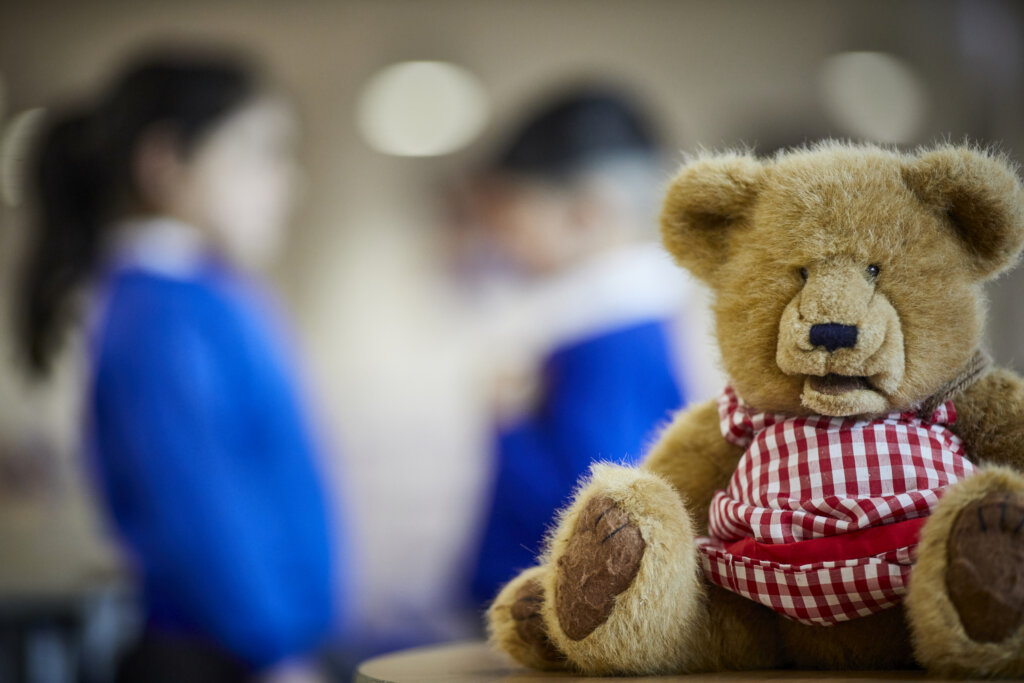Bullying Awareness Days
As the UK ‘Stand up to Bullying Day‘ is on the 13th of June 2019, it’s time for your schools to start thinking about how you are going to raise awareness around bullying, how it occurs and what people can do about it. The idea of the day is to essentially tackle bullying and support those involved.
In addition to the ‘Stand up to Bullying’ day, there is also an Anti-Bullying Week from the 11th until the 15th of November where you can re-visit or get more into depth with tackling bullying within your schools.
Schools Roles and Duties Regarding Bullying
Schools have a particularly important role in teaching children that bullying is unacceptable. You can provide your pupils with the knowledge and skills to build positive relationships with their peers (2). The NSPCC supports this and recommends that young people should be taught and speak about healthy relationships. Luckily, this is part of the changes that are coming into place in the new curriculum regarding sex and relationships, where students are made aware of how to form positive relationships as well as how to recognise toxic, bad relationships.
In addition to this, schools have a duty to prevent bullying within their schools. The Education and Inspection 2006 act requires all schools to have an anti-bullying policy in place. Academies also are required to have an anti bullying policy in place by the Independent School Standards Regulations 2012(1).
Ofsted will hold schools to account for how they deal with bullying, they aren’t as interested in ‘how many children are bullied at your school’ but will want to know how you intervene and prevent incidents (5).
The Prevalence and Impact of Bullying
Bullying consists of either individuals or groups of people intentionally seeking to cause harm. It can happen at any age, anytime, anywhere and to anyone. We all know that bullying can take form in many different ways and can be physical, or verbal. However, are aware of the short and long-term effects that bullying can cause, especially on our mental health.
The Worries of Cyber bullying
Within modern day society and our social media usage, children and young people are more vulnerable to online/cyber bullying. Online bullying can range in its severity, from name calling/being excluded from games to extreme hate sites and ones encouraging people to self-harm (1). Fake/anonymous accounts are created online, victims who are being bullied and parents and schools may not be aware of who it actually.
However, the Department of Education 2017 states that if you aware of bullying occurring outside of the school premise, then your staff still have the power to discipline in certain situations, bullying being one of them.
The Signs and Effects of Bullying
When working with children, it is important to be aware of your pupil’s “_norms_” – that way if anything changes, you are able to recognise it. These may be an indication that something is not right, such as a change in appearance or behaviour, a drop in attendance, new friend group (1). Change can be innocent and especially in the adolescent period, however it is always better to check it out as it may indicate serious safeguarding concerns.
Bullying can lead people to have a low self-esteem, depression and anxiety1 as well as more extreme outcomes such as suicidal thoughts and feelings (2). In relation to school, bullying can cause children to lose their focus and concentration at school. In extreme cases, bullying can leave children feeling too frightened to attend school (3). All of these factors not only impact on an individual’s mental wellbeing but ultimately affect children’s educational performance as well as impair and hinder their academic achievements.
Preventing Bullying in your Schools
Create an ethos at your school that emits respect and treating each other kindly.
Get the parents involved – having a good relationship with your pupils parents can allow you to work as a team and on the same page.
Make it easy for your pupils to report bullying – communicate with your pupils, ask how they would want to report being bullied and set up a system that works for you and your pupils i.e. an email, a drop in session, a phone call to the office.
Ensure that your staff are effectively trained on how to spot and deal with bullying.
If there are issues with bullies in your school, then support the perpetrator in a way of getting to the route of the cause.
Supporting the Perpetrator
One of the key factors that Ofsted are going to be focusing on as of September 2019, is… do schools support the perpetrator of bullying as well as the victim. The idea of doing this, is that the perpetrator is also hurt in some way and also is in need of support.
Although this may be a difficult task, often children don’t realise how they are making others feel. By tackling bullying with this manner, you are getting to the route of the cause and potentially stopping this person from bullying anyone else.
Understanding the Perpetrator
Everyone knows that bullying is wrong; sometimes the people who are bullying also know that what they are doing is wrong, but they aren’t able to work out themselves why they act like how they do. There are actually many reasons why people may find themselves in the position of bullying another, particularly within childhood/adolescence where there are already struggles of identity due to hormonal, physical changes and preparation for adulthood.
Bullying also can and does continue into adulthood, but often with the same route causes. For example, people may bully for their own self-protection, their reputation that they feel they can’t let fall, are they under pressure from peers, have they been bullied themselves, how is their home life and their family, are they not empowered enough by themselves and as a result seek power from others?
Furthermore, people may also bully others as they have underlying mental health or SEN concerns that may cause them to have a lack of empathy, sympathy or frustration, as they don’t understand how and why they feel like they do, or are they unhappy within themselves?
As you can see, there are many reasons why people may be a bully – so let’s early intervene, get to the bottom of it and find out why. This will take time as it will have to be on an individual basis, but not all people respond to discipline – not everyone is going to stop bullying another because they have been given a detention or have been excluded, some of these people also need genuine help and support. Therefore, let’s educate ‘bullies’ about the impact of their actions, as well as being a support system for them and investigate where their bullying tendencies originate from and offer solutions to stop the cycle.
References Used:
- NSPCC 2019 – Protecting and preventing children from bullying and cyber bullying
Bainbridge, J. Ross, C. and Woodhouse, A. (2017) Inquiry into bullying and harassment in schools: children and young people’s voices and experiences of bullying and harassment in schools (PDF) [Edinburgh]: Children in Scotland.
Brown, V., Clery, E. and Ferguson, C. (2011) Estimating the prevalence of young people absent from school due to bullying (PDF) [Cambridge]: Red Balloon Learner Centre Group.
Children’s Commissioner for Wales (Comisiynydd Plant Cymru) (2017) Sam’s story: listening to children and young people’s experiences of bullying in Wales (PDF) Swansea: Children’s Commissioner for Wales.
Department for Education 2017 – Preventing and Tackling Bullying
Please get in touch or visit our Safeguarding resources section for more information.















